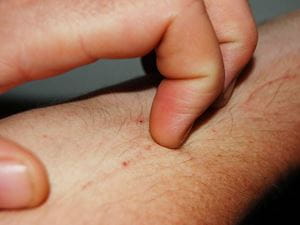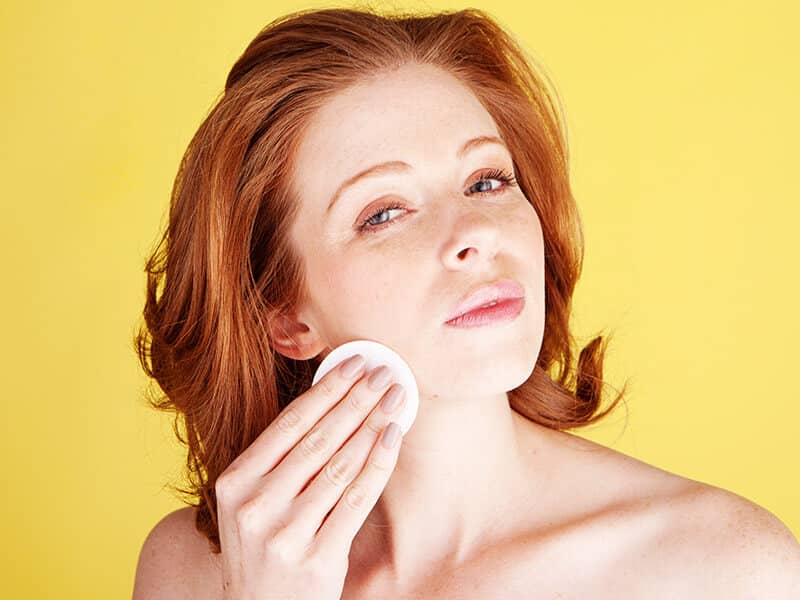
Dry, itchy, and painful skin can be due to a wide range of skin conditions. Two of the most popular conditions thought are psoriasis and eczema. These two conditions can appear very similar and make it tough to distinguish a difference. Both conditions cause red, itchy skin but have different causes and treatments.
Eczema is a skin condition that can be caused by a number of factors including environmental factors, allergens, family history and bacteria exposure. On the other hand, psoriasis is a condition that occurs when a person’s immune system triggers skin cells to grow faster than they should. Instead of the dead skin cells coming off the skin, they build up. In addition, psoriasis can cause joint stiffness as well as swelling.
Both of the conditions can keep the skin from appearing smooth and healthy. There is only one type of eczema, and five types of psoriasis. However, the most common form of psoriasis is plaque psoriasis, which is the form that most clearly resembles eczema. While it’s rare that a person will have both of the conditions at once, it is possible.
Appearance
Due to the buildup of psoriasis plaques, the skin will have thick, red and scaly patches that are well-defined. These may be silvery in color and are raised up high. The skin will be thicker and more inflamed than if it was eczema.
Eczema is different with the patches being red or brown-gray in color. There will be rough, leathery patches of skin. Sometimes the areas will appear as small raised bumps. These bumps may have a crust-like layer that causes them to leak fluid when broken.
Itching
Eczema is known to cause very intense itching that usually worsens at night. When a person scratches the skin, the results can be swollen, sensitive and even raw skin. However, while psoriasis can cause itching it typically is only mild. There instead may be a sting or a burn feeling.
Age of Occurrence
Eczema is more common in children than adults, and tends to subside at about age 5 or 6 according to the Nemours Foundation. However, some young people may have flare-ups during puberty.
Psoriasis typically develops between the ages of 15 and 35, and babies rarely have the condition. The American Academy of Dermatology estimate that 1 percent of children have psoriasis while 10 percent of children have eczema.
Location
Eczema appears most commonly on part of your body that bend, including your inner elbow or behind the knee. Babies will sometimes get it on their chin, cheeks, scalp, and similar.
Psoriasis can appear on the nails, which is rare for eczema. In addition patches of psoriasis can show up on elbows, knees, the scalp, lower back, palms of hands, soles of feet, eyelids, ears, mouth and lips.
Treatment Options
Both psoriasis and eczema share some triggers, such as stress and infection. It’s important to avoid things that will irritate the skin, such as certain soaps, detergents and disinfectants. Since allergens can set off eczema, it’s also important to avoid things like dust, pets, pollen and mold if necessary.
Psoriasis can also get flare-ups when the skin is injured, for example by vaccinations, sunburn and scratches. Medications such as lithium or drugs for malaria are also known to bring on psoriasis symptoms. Talk with your doctor about how to avoid these triggers.
Mild-to-moderate psoriasis treatments include over-the-counter corticosteroids that work by reducing inflammation and itching. Moderate-to-severe psoriasis can be treated with stronger medications available by prescription.
Eczema has no cure. Keeping the skin clean, moisturized and dry can help relieve symptoms. If avoidance of triggers and at-home treatments don’t work, a doctor can prescribe stronger creams.
Other Skin Conditions
Psoriasis and eczema aren’t the only types of skin conditions that resemble each other. Examples of other skin conditions that are commonly misdiagnosed include athlete’s foot, contact dermatitis, shingles, hives, rosacea and seborrheic dermatitis. If you are unsure of what is causing your skin issues, monitor the area closely and go see a doctor.
Linked Conditions
Psoriasis has been linked to serious health conditions including diabetes, heart disease and depression. Eczema doesn’t have serious links. However you may have someone else in your family with eczema, or have asthma or hay fever.
Regardless of the skin condition, it’s important to speak to a doctor about treatment options and ways to find relief for the problem. Keep a log of your symptoms and try to identify the triggers that make it worse. This will help in pinpointing if you have eczema or psoriasis.

